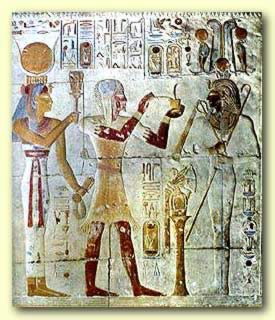DO WE REALLY VALUE EXPERT TEACHERS/TEACHING

In ancient Egypt, China, and India, teaching was often the responsibility of priests or prophets, who enjoyed prestige and privileges. The ancient Greeks saw value in educating children, and wealthy Greeks often hired teachers for their households. During the first five centuries AD in the Roman Empire, citizens often had teacher-slaves.
By the Middles Ages in Europe, the Roman Catholic Church had taken over the responsibility of teaching, which it allocated to monasteries and specially designed learning centers. Many of these learning centers later evolved into major universities. During the 17th and 18th centuries, interest in children's education intensified. Throughout Europe, knowledge about teaching methods increased, and many new schools were founded. Training other teachers in new educational theories and teaching techniques significantly advanced education.
Rapid and profound social change has deeply affected our present-day teaching institutions. The change from a system designed to educate an elite to one of mass education not only increased the numbers of teachers and pupils, it also brought perplexing problems related to quality. Today this is compounded by environmental stress including the consequences of overeating and lack of exercise or movement in the western world. In the psychological realm, unmistakable damage arising from trauma in childhood and adolescence, especially due to sensory bombardment is prevelant. How to achieve high standards of education in these circumstances is a personal and social challenge that needs much creative thought and determination from teachers. We need to develop concepts and educational approaches which do justice to the most varied developmental needs and conditions. We need to really value teaching as a formative experience of great significance. Teachers, who in days gone by were regarded in high esteem, need to reclaim their status as one of the most significant factors in students lives. A colleague of mine who practices in a therapudic setting (counseling), said there are only two major thematic sources from which her clients draw their issues; their parents or their teachers.
In the Balinese culture the teacher is still a source of great admiration. In respect and honour of the teacher students are required to be seated in class ready to work before the teacher arrives.
In a recent interview, federal Education Minister Julie Bishop said that talented teachers who inspire students should be paid more. "I do not believe that this country sufficiently recognises or rewards its good teachers. "It certainly doesn't treasure its great teachers and we should. " Ms Bishop said good teachers were easy to pick.
"People say to me, how can you possibly judge who is a good teacher or a bad teacher," she said.
"You go into any school and you say, who are the good teachers and the bad teachers, and they'll tell you. Students can tell you, parents can tell you, other teachers can tell you, and yet the state government can't work it out."
Hattie says expert teachers do differ from experienced teachers – particularly on the way they represent their classrooms, the degree of challenges that they present to students, and most critically, in the depth of processing that their students attain. Students who are taught by expert teachers exhibit an understanding of the concepts targeted in instruction that is more integrated, more coherent, and at a higher level of abstraction than the understanding achieved by other students.
Hattie’s studies concluded that in general we have a reticence to identify such excellence in the fear that the others could be deemed not-excellent. Hattie also argues that we work on the absurd assumption that all teachers are equal, which is patently not true to any child, any parent, any principal, and known by all teachers.
Such an assumption of equality brings all teachers down to the latest press scandal about a teacher, and our profession needs and deserves better than this. Every other profession recognizes and esteems excellence (Queens Counsels, Colleges of Surgeons, Supreme Court Judges) but in teaching we reward primarily by experience irrespective of excellence, we promote the best out of the classroom, and we have few goalposts to aim for in professional development, instead allowing others to define what latest fad, what new gimmick, what new policy will underline the content of professional development.
Like expertise in teaching, we need a deeper representation of excellence in teachers, a greater challenge and commitment to recognizing excellence, and a coherent, integrated, high level of deep understanding about teacher expertise.




0 Comments:
Post a Comment
<< Home